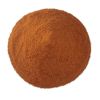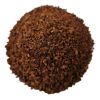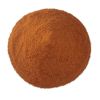Cinnamon Facts
Did you know?
In the first century A.D., cinnamon was 15 times more expensive than silver, due to the high demand and very low availability.
Applications
Whether buying for an individual household or you’re needing wholesale cinnamon powder, adding the spice brings color and flavor to baked goods, marinades for meat, such as beef or lamb, adding the tropical spice to tea, and a variety of other dishes.
Cassia can be used in sweet applications, such as baked goods like apple pie and cinnamon rolls and it can also be incorporated into savory seasonings such as five-spice.
Origin
Cinnamon is native to Sri Lanka. It comes from the inner bark of several tree species from the genus Cinnamomum. Meanwhile, cassia originates from Southern China and is a member of the Lauraceae family. It’s similar to Cinnamomum verum but has a more pungent flavor.
Cassia, or Cinnamomum aromaticum, is made from strips of the inner bark of the Cinnamomum tree. The strips are dried until they curl into quills, then they’re pulsated to make ground cinnamon. Cassia or a mix of cassia and cinnamon powder is often what shoppers buy in commercial stores as cinnamon. Learn more about how cassia and cinnamon is cultivated with Olam Spices and partnerships with cassia farmers.
Vitamins and Minerals
- Calcium
- Iron
- Magnesium
- Phosphorus
- Potassium
- Vitamin A
- Vitamin K
Cassia Facts
Did you know?
Cassia is made from strips of the inner bark of the Cinnamomum tree. The strips are dried until they curl into quills, then they’re ground.
Applications
Cassia can be used in sweet applications, such as baked goods like apple pie and cinnamon rolls and it can also be incorporated into savory seasonings such as five-spice.
Origin
Cassia originates from Southern China and is a member of the Lauraceae family. It’s similar to Cinnamomum verum but has a more pungent flavor.
23 Vitamins and Minerals
• Betaine
• Calcium
• Carotene
• Choline
• Copper
• Folate
• Iron
• Magnesium
• Manganese
• Niacin
• Pantothenic Acid
• Phosphorus
• Potassium
• Riboflavin
• Selenium
• Sodium
• Thiamin
• Vitamin A
• Vitamin B-6
• Vitamin C
• Vitamin E
• Vitamin K
• Zinc




